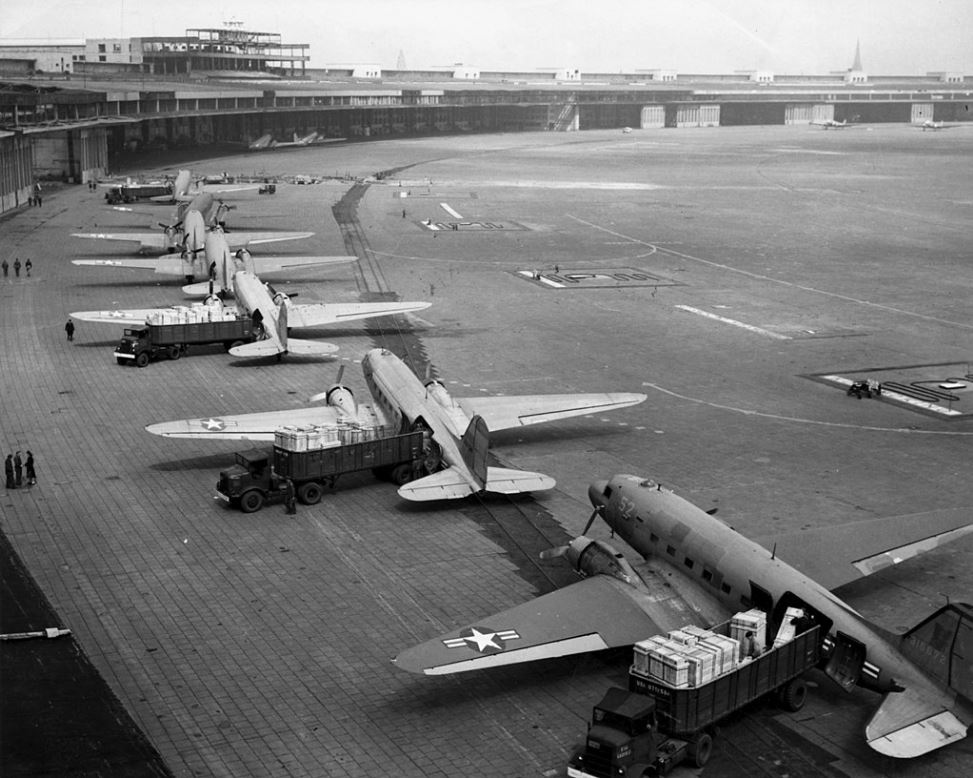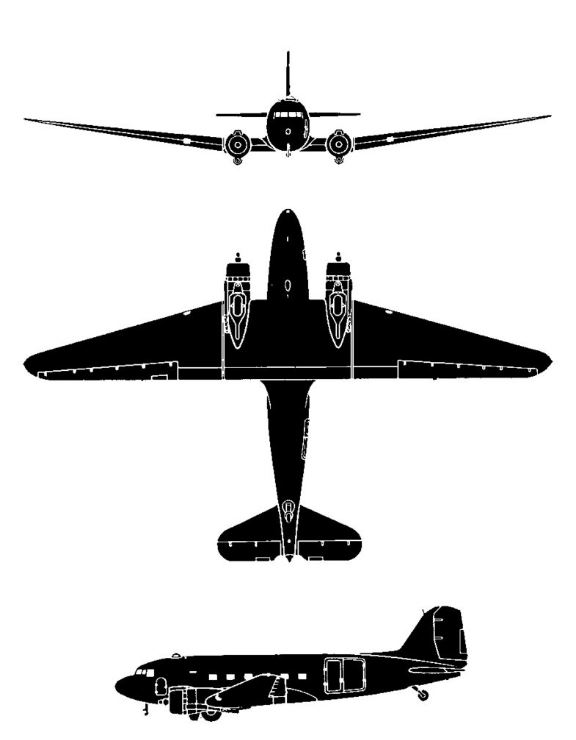Difference between revisions of "North American Dakota"
From Our Contribution
(→Crew members) |
(→Ground Crew) |
||
| Line 37: | Line 37: | ||
===Ground Crew=== | ===Ground Crew=== | ||
| + | |||
| + | ====No. 4 Aircraft Depot RAAF==== | ||
| + | * [[Robert Alexander MacLean]] 23 Jan 1943 - 4 Jun 1944 | ||
| + | * [[Alfred Ensor Hand]] 30 Oct 1944 - 3 Jan 1946 | ||
| + | * [[Edward Trayton Elvish]] | ||
| + | * [[Maxwell Kenneth Ottaway]] | ||
[[category:Aircraft]] | [[category:Aircraft]] | ||
Revision as of 01:36, 30 July 2020
Contents
Remarks
Developed for military purposes from the Douglas DC-3 (only 670 of the civilian DC-3 variant was produced}. The military version included a cargo door, hoist attachment and strengthened floor, with an astrodome in the cabin roof. The 2,000 purchase by Britain and Commonwealth countries (Australia 124) was known as a Dakota, while others knew it as a "gooney bird". It could carry up to 28 passengers; 2.5 tons of cargo; or 18 Stretcher patients.
General characteristics
- Crew: Two or three (2 x pilots & Navigator)
- Length: 19.7 m
- Wingspan: 29.0 m
- Height: 5.16 m
- Empty weight: 7,650 kg
- Max takeoff weight: 1,431 kg
- Powerplant: 2 x Pratt & Whitney 14 cy air cooled piston engines 890 kw each.
- Maximum speed: 370 km/h at 2,590 m
- Range: 2,400 km
- Service ceiling: 7,100 m
- Armament
- Guns:
- Bombs:
Crew members
Ground Crew
No. 4 Aircraft Depot RAAF
- Robert Alexander MacLean 23 Jan 1943 - 4 Jun 1944
- Alfred Ensor Hand 30 Oct 1944 - 3 Jan 1946
- Edward Trayton Elvish
- Maxwell Kenneth Ottaway

